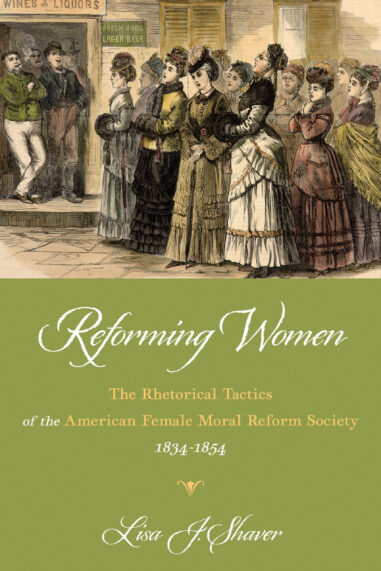
Paperback $50.00
Request Exam or Desk Copy. Request Review Copy
Reforming Women
The Rhetorical Tactics of the American Female Moral Reform Society, 1834-1854
Through its consideration of the women’s reform movement of the mid-nineteenth century, Shaver greatly expands our knowledge of women’s activism. As this study documents, reform society rhetors employed righteous anger, the claim of social responsibility, and other methods that impacted the campaigns for Prohibition and woman’s suffrage—and that can illuminate the choices of women speakers, and public responses to them, ever since.

